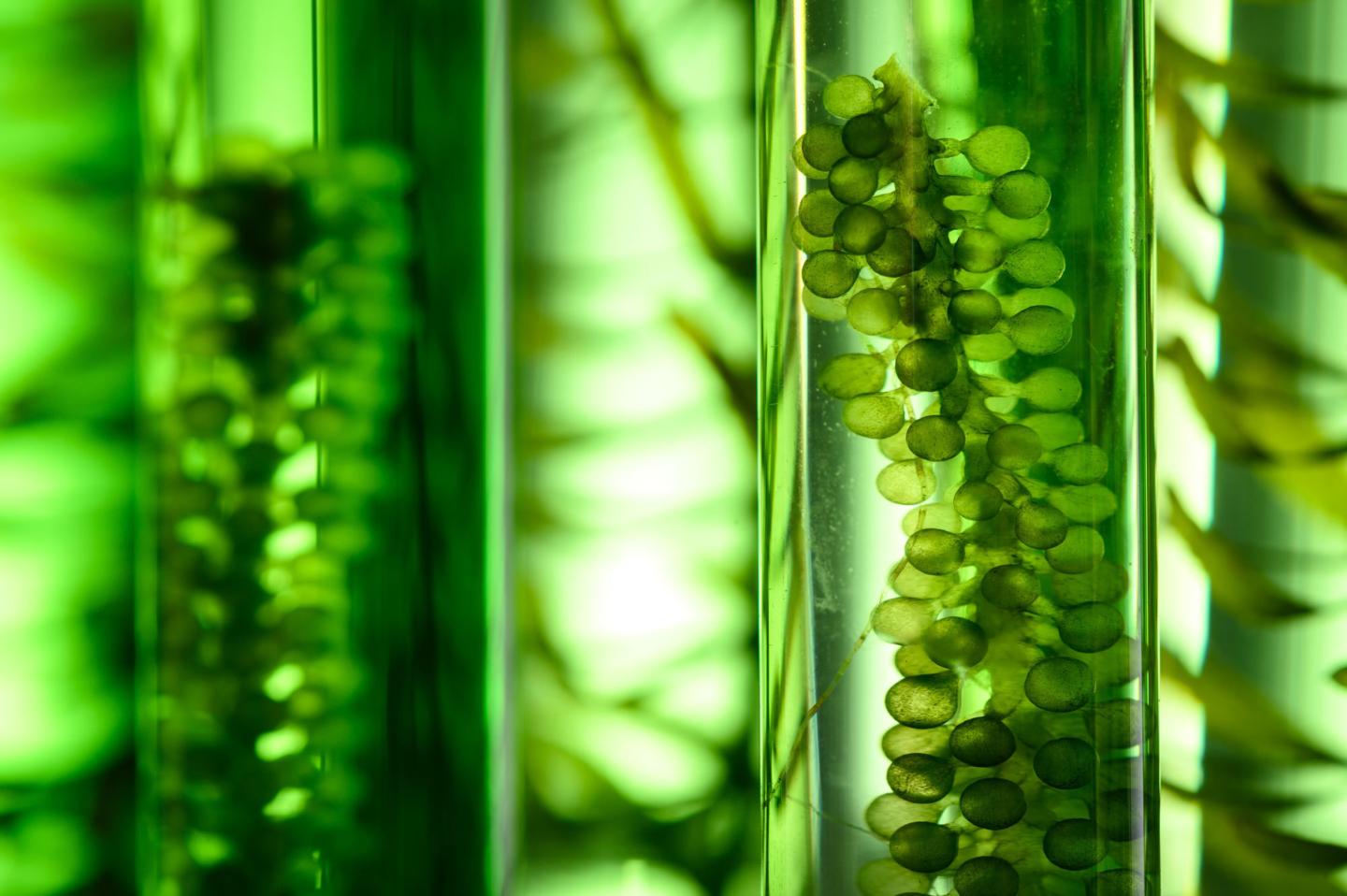Sustainable energy sources
Following the energy sector and industries, traffic the is third biggest CO2 producer. It is the fuel quality that plays a decisive role. On top of that, scarce fossil resources, the threatening climate change, the request for environmentally friendly alternatives and the urgently needed energy security serve as further cornerstones in the search for advanced fuels. These advanced fuels should minimize the application of crude oil and should be developed through innovative and environmentally friendly technologies, achieving a CO2-neutral total balance during production and combustion.
The basis of advanced fuels is mostly of biogenic and synthetic origin. Biogenic fuels are derived from plants, plant residuals and waste or manure, synthetic fuels are produced chemically. These alternative fuels are already used in many fields and are usually mixed with conventional fuels. Bioethanol is the world’s most important biofuel, which is added over here.

Propulsion Materials For The Future
The bioethanol is derived through sugar fermentation from plants. Principally, sugary, starchy or cellulosic plants are appropriate. In Germany, especially wheat, rye or sugar beets can be considered. In addition, there are biokerosene, derived from algae and methane, which are produced through renewable energy sources from carbon dioxide (Power-to-Gas).
The number of advanced fuels, not derived from food but produced by predominantly local feedstock between 2021 to 2030, is determined by three factors: profitability at a certain degree of political support, availability of feedstock and the speed at which new refineries for advanced biofuels are built. The policies of the new EU-directive on renewable energies until 2030 (RED II) define the target of 27% of renewable energies by fuel suppliers in 2030. Of these 27 %, 14 % of renewable energies should be consumed by road and rail traffic.
This new fuel generation bears great economic potential due to innovative technologies, great efficiency and decreased need for space. Based on the high investment costs, similarly to the funding of e‑mobility and the hydrogen strategy, politics is again demanded to promote the building of capacity by corresponding investment incentives. In a best-case scenario, alternative biofuels can foster the achievement of climate protection goals.
For a general overview of the sustainable fuels available on the market, we have developed an interactive matrix on “Sustainable Fuels” in the EU project “SUNLIQUID”, based on the brochure “Advanced Biofuels”. It provides an overview of the feedstocks and processes used, as well as the resulting products with the respective technologies and responsible companies. Feel free to take a look at it!
News
-
The Scale-up Accelerator Network is a program that connects start-ups with experienced industry experts who perform an independent assessment and provide targeted support in scaling up industrial…
-
Weizmann Institute researchers have created a biodegradable composite material that might help battle the global plastic-waste crisis.
-
Up to now, wood waste has had to be disposed of at great expense and, at best, has been used to generate energy in incineration plants. Fraunhofer researchers are now using this valuable resource to…
-
BBEPP has built a 75,000-liter demonstration fermenter, which is now ready for operation
-
Starke Ayres Advances Vegetable Breeding Program Through New Partnership with Computomics
22.11.2024NewsComputomics, a leader in AI-driven bioinformatics solutions, and Starke Ayres, Africa’s leading independent vegetable seed company, are pleased to announce a collaboration aimed at advancing crop…
-
Designing large new proteins with AI
Events
-
22. — 24. September 2025 | Siegburg, Germany
-
21. — 23.07.2024 | Berlin
-
29. — 30. April 2025 | Cologne, Germany








